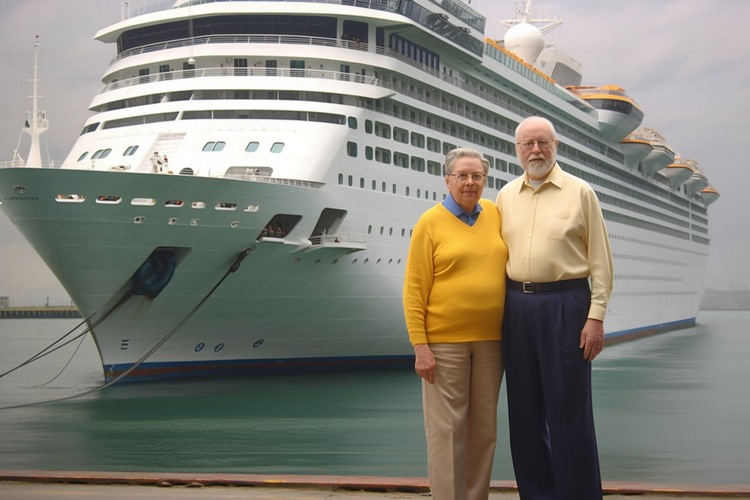Cruise Jobs: Roles, Requirements, and Life at Sea
Working on a cruise ship combines employment with extended travel: staff live and work aboard a moving vessel that visits multiple ports. Cruise jobs span hospitality, entertainment, technical and maritime roles, each with distinct responsibilities, schedules, and documentation requirements. This article explains common job categories, workplace realities on a ship, health and safety considerations at sea, how travel factors affect employment, and practical steps to prepare for applying to cruise positions. It does not list current openings.

What roles exist on a cruise ship?
Cruise ships rely on a wide range of positions to operate. Service and hospitality roles include housekeeping, food and beverage staff, and retail attendants. Entertainment and guest-facing jobs cover performers, youth staff, and shore excursion coordinators. Technical and maritime roles include deck officers, engineers, and maintenance crew. Administrative and medical roles—such as IT, finance, human resources, and shipboard nurses—support operations. Job responsibilities vary by ship size and itinerary; some roles require specific maritime qualifications or industry experience.
How does working on a ship differ from shore jobs?
Life on a ship means living in a compact, shared environment where work and off-duty time are confined to the vessel and scheduled port visits. Shifts can be long and sometimes include evenings and weekends, as guest services operate daily. Crew members have regulated work-rest hours under maritime and international labor standards, but daily routines differ from land-based jobs. Accommodation, meals, and basic utilities are often provided onboard; however, personal time is limited when at sea. Cultural diversity is common, with multinational teams working together.
What health and safety on the sea affect cruise employment?
Health and safety protocols at sea follow international maritime regulations and company policies. Most cruise lines require a medical clearance and vaccinations or health checks before boarding. Basic fire, evacuation, and workplace safety training is standard for crew. Ships maintain medical facilities for routine and emergency care but may have limitations compared to shore hospitals. Mental health and fatigue management are important because of long contracts and close living quarters. This article is for informational purposes only and should not be considered medical advice. Please consult a qualified healthcare professional for personalized guidance and treatment.
How does travel factor into cruise employment?
Travel is intrinsic to cruise jobs: crew move between ports and may spend extended periods away from home. Contracts often range from a few months to longer terms, and visa or work-permit requirements depend on the cruise line and sailing regions. Employees should be prepared for international travel logistics, including passport validity, visas for shore staff when required, and potential quarantine or entry rules that can change. Travel patterns affect scheduling, shore leave availability, and how employees maintain contact with family and manage personal logistics while contracted.
How to prepare for a cruise job application?
Preparing for a cruise job means verifying required documents, gaining relevant experience, and obtaining industry certifications where needed. For many maritime roles, STCW (Standards of Training, Certification and Watchkeeping) certificates are essential; hospitality roles value food safety, first aid, and customer service experience. Update your resume to highlight international or remote-work adaptability, language skills, and references. Be ready for sequential steps: written applications, video or in-person interviews, background checks, and pre-boarding medical screening. Note: this article does not provide or guarantee current job listings or openings; hiring activity varies by employer, season, and region.
| Provider Name | Services Offered | Key Features/Benefits |
|---|---|---|
| Carnival Cruise Line | Passenger cruising across multiple itineraries | Large fleet, varied entry-level hospitality roles, multinational staff |
| Royal Caribbean International | Passenger cruises including entertainment and technical operations | Broad onboard entertainment programs, training opportunities |
| Norwegian Cruise Line | Freestyle cruising with service and hospitality roles | Emphasis on varied dining and guest services, seasonal and contract positions |
| MSC Cruises | International routes with diverse onboard departments | Growing global presence, multilingual environment |
| Princess Cruises | Passenger voyages with hospitality and maritime operations | Established cruise brand, technical and guest services careers |
This table lists major cruise line employers commonly referenced in industry overviews. It does not indicate current vacancies or application status; contact providers directly or visit official career pages for verified openings.
Conclusion
Cruise jobs offer a combination of professional responsibilities and extended travel, with opportunities across hospitality, operations, technical, and support functions. Success depends on meeting documentation and training requirements, adapting to onboard living, and understanding how travel logistics and regulatory rules affect employment. This overview is informational and does not substitute for direct inquiries with cruise employers or professional maritime advice.






